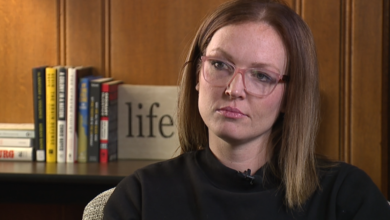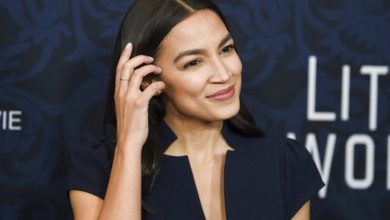
- A CDC committee is meeting Wednesday to decide who should be eligible for a booster dose of Pfizer-BioNTech's COVID-19 vaccine.
- However, the FDA hasn't yet authorized a third dose. So the CDC group will only vote if the FDA acts in the meantime.
- Any decision isn't necessarily the final one. As new data emerges, more people may be recommended for a booster.
A committee of top vaccine experts started 10 hours of meeting Wednesday morning to decide who should be eligible for a booster dose of the Pfizer-BioNTech COVID-19 shot. A vote is expected Thursday.
A different federal advisory committee on Friday recommended a third dose of the Pfizer-BioNTech vaccine six months after full vaccination for people age 65 and older and those at high risk of severe COVID-19.
The FDA has not yet issued an approval for the booster doses, so while the CDC's committee can meet, it cannot vote on recommendations until it receives that sign-off, said Dr. Julie Morita, executive vice president of the Robert Wood Johnson Foundation, a health-focused nonprofit.
On Thursday afternoon, there is space in the schedule of the Advisory Committee on Immunization Practices when a vote could be taken if the FDA acts in the meantime.
The CDC's advisory group has a difficult task: Deciding who really needs a booster. It has met 59 times since the pandemic began.
"I don't think any of those committee members has probably slept in the last 18 months," said Morita, a former member of the committee.
Q&A:When will the Pfizer-BioNTech COVID-19 vaccine be ready for kids?
The FDA is in charge of looking at the data submitted by a company and deciding if its drug or vaccine is safe and effective.
The CDC committee decides who really needs that particular product, factoring in things like who it's safe and effective for and who really needs it.
The last stop is then the director of the CDC, Dr. Rochelle Walensky, who must sign off on the decision. Once it's published by the CDC, health care workers can begin distributing the vaccine according to that decision.
Any decision isn't necessarily the final one, said Morita. As new data emerges, more people may be recommended for a booster.
"If the pandemic has done nothing else, it's made clear that recommendations like this for a vaccination or other preventative measures evolve and change based on the data as it becomes available," she said.
CDC advisory is independent of the FDA
The Advisory Committee on Immunization Practices doesn't always go along with the FDA.
Sometimes, ACIP recommends that everyone for whom a vaccine is licensed should get it. That was the case with the rotavirus vaccine, which was the leading cause of severe diarrhea among infants and young children in the United States before a vaccine became available.
Now, it's recommended for every child aged 2 months and up "and most of my students have never seen a case," said Dr. Paul Offit, director of the Vaccine Education Center at Children's Hospital of Philadelphia and one of the vaccine's creators.
In other cases, the committee may decide that only a subset of people should get a vaccine based on the risks and benefits.
That's what it did for the older shingles vaccine, Zostavax. The FDA licensed it for everyone 50 and older but because most shingles cases mainly occur in people 60 and over, ACIP only recommended it starting at 60 because it didn't last for a lifetime.
Since then, a new shingles vaccine, Shingrix, was approved by the FDA, which does last much longer. The ACIP recommended it for everyone 50 and older.
And sometimes, a vaccine is authorized that's safe and effective, but ACIP says most people don't need it.
That's what happened with the meningitis B vaccine. It's highly effective against the devastating illness, but cases of it in the United States are exceedingly rare.
"The number of cases is so small that the cost to prevent even a single case was in the multimillion-dollar range, so they didn't recommend it for all children," said Dr. Kelly Moore, chief executive officer of Immunize.org, which educates health care professionals about U.S. vaccine recommendations.
Instead, it was recommended for very specific populations, including those with damaged spleens, certain inherited immune disorders, HIV infection, people going to countries where the disease is common and microbiologists who work with the bacteria.
More on vaccines:Pfizer-BioNTech say low dose of its COVID-19 vaccine is safe and effective for kids 5-11
Contact Elizabeth Weise at [email protected] and Karen Weintraub at [email protected].
Health and patient safety coverage at USA TODAY is made possible in part by a grant from the Masimo Foundation for Ethics, Innovation and Competition in Healthcare. The Masimo Foundation does not provide editorial input.
Source link








